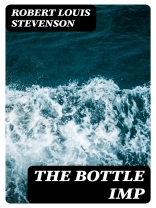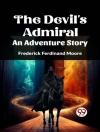Robert Louis Stevenson’s ‘The Bottle Imp’ is a masterful blend of adventure, morality, and the fantastic, encapsulated in a narrative that deftly explores the complexities of desire and consequence. Set in the enchanting backdrop of the South Seas, the story follows the protagonist, Keawe, who stumbles upon a magical bottle containing an imp that grants wishes. However, the catch lies in the bottle’s curse: if the owner dies while in possession of it, their soul is condemned to hell. Stevenson’s prose reflects the influences of Gothic literature and the fin de siècle fascination with morality tales, interweaving elegance with straightforward storytelling that beckons readers to consider the ethical implications of unchecked ambition and the human condition. Stevenson, renowned for his rich storytelling and adventurous spirit, was deeply influenced by his own life experiences, including his travels throughout the South Pacific and a preoccupation with the nature of good and evil. His personal struggles with health and profound thoughts on mortality also find resonance in this tale. The narrative serves as a mirror to Stevenson’s contemplation of the allure and dangers of material desires, influenced by his fascination with the interplay of fate and free will. Readers seeking a thought-provoking and captivating story will find ‘The Bottle Imp’ an essential addition to their literary repertoire. Not only does it provide an enthralling adventure steeped in cultural lore, but it also invites readers to reflect upon the unforeseen ramifications of their choices. This timeless tale remains a pertinent exploration of morality, making it an indispensable read for enthusiasts of classic literature.
लेखक के बारे में
Robert Louis Stevenson (1850–1894) was a prolific Scottish author known for his versatile literary craft and adventurous spirit, which permeated his works. He generated a body of work that included novels, essays, poetry, and travel writing, showcasing a talent for narrative and an innate ability to captivate audiences with his storytelling. Perhaps best known for classics such as ‘Treasure Island’ and ‘Strange Case of Dr Jekyll and Mr Hyde, ‘ Stevenson’s contribution to literature also encompasses lesser-known gems like ‘The Bottle Imp’—a tale that intertwines the mystical with moral quandaries, indicative of his fascination with the supernatural and the human condition. Stevenson’s literary style often reflects the duality within nature and people, a theme that resonates through his exploration of moral ambiguity and psychological complexity. While his adventure novels earned him popular acclaim, his other works highlight his range and depth as a writer, solidifying his status as a significant figure in 19th-century literature. His influence extends beyond his lifetime, as Stevenson’s imaginative prose continues to inspire readers and writers alike. The enduring popularity of his stories is a testament to their timeless quality and Stevenson’s mastery of the written word.












